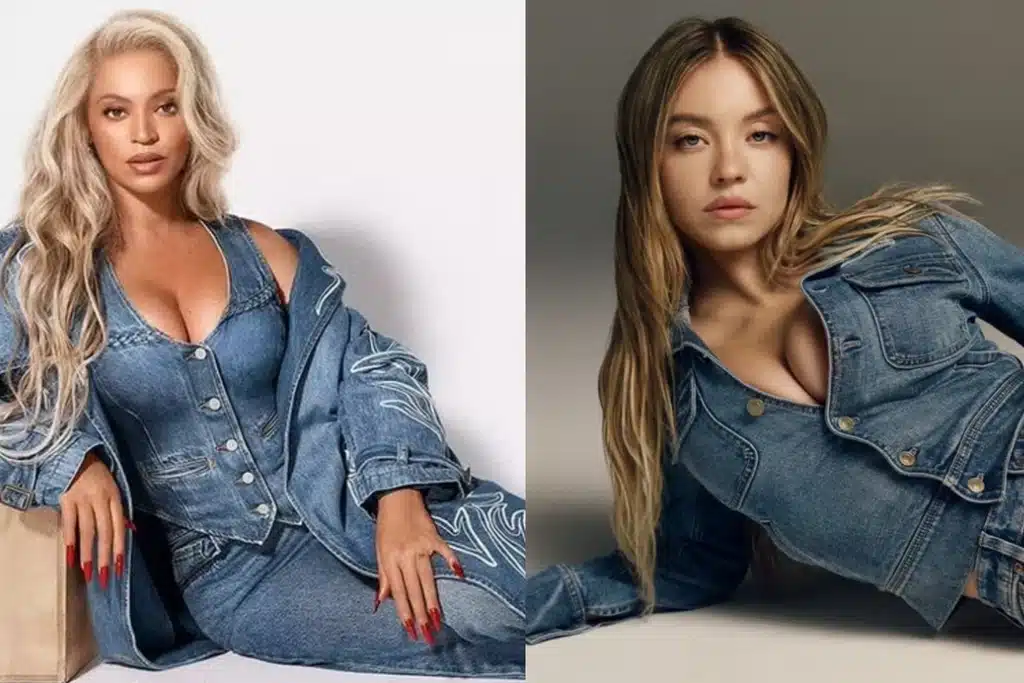Overview
The recent American Eagle jeans campaign featuring actress Sydney Sweeney has ignited a cultural firestorm, prompting discussions about race, beauty standards, celebrity branding, and political alignment. Media figure Megyn Kelly has stepped in to defend Sweeney, criticizing what she calls the hypocrisy and overreaction of the backlash—while also taking a swipe at Beyoncé’s fashion campaign with Levi’s.
The Controversial Campaign
The campaign tagline, “Sydney Sweeney Has Great Jeans,” was intended as a light pun referencing both denim and genetics. However, critics on social media argued that the wordplay—paired with Sweeney’s blonde hair and blue eyes—invoked eugenic undertones and a celebration of outdated Western beauty ideals.
Supporters of the campaign argued that the backlash was exaggerated, pointing out that Sweeney is a well-known face in youth fashion and the message was meant to be playful, not political.
Megyn Kelly’s Response
Conservative commentator Megyn Kelly weighed in heavily on the controversy. She defended Sydney Sweeney, calling the public criticism absurd and politically motivated. In contrast, Kelly criticized Beyoncé’s recent Levi’s campaign, describing it as overly produced and inauthentic.
Kelly suggested there is a double standard in how beauty and branding are judged, depending on the celebrity and the political leanings of the audience. She argued that Sweeney was unfairly targeted because she doesn’t fit certain progressive ideals.
Political and Celebrity Reactions
Public figures across the political spectrum responded:
- Former President Donald Trump praised the ad and called the controversy a distraction by “radical critics.”
- Music artists like Lizzo subtly mocked the campaign by posting their own parody versions.
- Online personalities clashed over whether the backlash was rooted in genuine concern or an overreach of cancel culture.
Despite—or perhaps because of—the firestorm, American Eagle’s brand visibility surged. Its stock reportedly spiked following the controversy, illustrating how polarizing ads can still boost business.
Beyoncé vs. Sweeney: A Cultural Flashpoint
The comparison between Beyoncé’s and Sweeney’s denim campaigns became a focal point of the discourse. Supporters of Beyoncé viewed her campaign as artistic and empowering, while critics argued it was heavily manufactured.
On the other hand, Sweeney’s supporters described her campaign as authentic and unfiltered—qualities they felt are often undervalued in an era dominated by hyper-stylized media.
This comparison underscored broader issues about:
- Authenticity in branding
- How race and appearance influence public reception
- The shifting standards of beauty in advertising
Impact on Advertising and Representation
The campaign has opened a wider conversation about representation in advertising:
- Should brands take more responsibility for how wordplay and visuals are interpreted?
- How do race, body type, and fame influence what is considered acceptable?
- Is all publicity truly good publicity when it comes to brand equity?
While American Eagle did not issue a formal apology, insiders suggest the company is re-evaluating future campaigns with a greater emphasis on sensitivity and broader audience testing.
Conclusion
The uproar over Sydney Sweeney’s American Eagle campaign—amplified by Megyn Kelly’s defense and comparison to Beyoncé—reflects deep divisions in how audiences interpret beauty, branding, and cultural messaging. Whether one views the campaign as harmless fun or a problematic throwback, it undeniably highlights how even a pair of jeans can become a battleground in today’s polarized media environment.
As advertisers navigate increasingly diverse audiences, they must balance creativity, inclusivity, and clarity—because in the era of instant backlash, every message matters.


